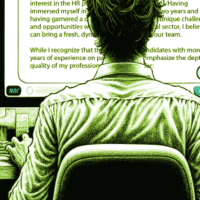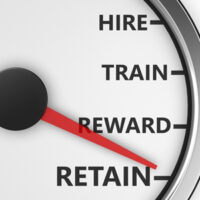
You have created a stellar resume by using the tips provided in the article titled “Resume Tips for the AML Professional”1 and you have followed that up with a proactive marketing strategy as recommended in the article “Marketing 101: How an AML Professional can Increase Marketability.”2 Your dedicated efforts have resulted in an interview for a non-IT related financial crimes professional role. Assuming that you have the job locked up solely because the company called you is likely the most damaging mistake you can make while job hunting. Careful preparation, from the time you get the call for the interview through the time you exit the interview, is what will set you apart from other candidates.
Upon receiving a call for an interview, your first step is to re-familiarize yourself with the company. You have already completed some research on the company when deciding whether you should apply. Now is the time to take the research to the next level:
- Research the corporate structure, locations, asset size and the number of branches (if applicable).
- Get a sense of their business model and products/services offered.
- Understand what federal and/or state examinations the company is subject to.
- Learn what you can about the company’s culture from news articles or by reaching out to peers on social networking sites.
- Determine if the company is under a consent order (Note: Do not bring the topic up unless the interviewer mentions it first).
- “Analyze the job description and your match with it. Write out their requirements and how you meet those requirements.”3 Your goal in the interview is to stand out, in a good way, among the other candidates. Hubris/ego needs to be in check when speaking about your qualifications for the role. As you did when crafting your resume, be honest! Do not oversell your qualifications or you may find yourself in a role for which you are unprepared. Speak honestly about your experience with various technology and systems, audits and examinations.
- Find ways to “convey that you want the position and would be motivated to excel in the role long-term. If you’re only interviewing for this job because you need the paycheck, that’s going to come through.”4 Asking about opportunities for advancement within the organization can also lead a recruiter or hiring manager to think you may be in the role short term, so tread lightly here.
- Do not assume the interviewer knows your background or your accomplishments. Remember that oftentimes employers review your resume for less than a minute. Be prepared to demonstrate how you will be of value to the organization or the team. Have examples of when you took initiative and made a positive impact in your current or former roles (Note: be careful not to disclose confidential or proprietary information).
- Beware of terminology overload—especially if the interviewer is from human resources and is not the hiring manager. The interview is certainly the right time to display knowledge, but continuous name-dropping of software and applications may get tiresome for the non-subject matter expert interviewer, resulting in a negative impression.
Prepare for common interview questions like “Where do you see yourself in five years?” In addition, when answering the question “Why are you leaving your current role?” follow the tips below:
- Avoid making negative comments about current/prior employers. Negativity breeds negativity. It may leave the interviewer wondering what you will be saying about his/her organization when you leave there.
- Give serious consideration when formulating your response. A simple internet search will result in pages of links purporting how to best answer standard interview questions.
- Practice your responses in front of mirrors, friends or a mentor. Replace the word “can” in your responses with the word “have.” For example, say “I have led a team of experienced suspicious activity monitoring investigators” in lieu of “I can lead a team of experienced suspicious activity monitoring investigators.”
- “Canned” responses will not win points with an interviewer, so ensure your responses are genuine. In addition, if you take too long during the interview to formulate a response, it may appear as if you are being untruthful.
- Golden rule when interviewing: above all else, be honest.
Prepare for uncommon interview questions like:
- Can you give me the names of four people whose careers you have fundamentally improved?5
- How do you handle criticism?
- What is your management style or what management style do you work best under?
- Do you prefer being a sole contributor or working on a team?
The most difficult interview question to answer is concerning salary expectations. “Before you consider answering the question, it is important to know the going rate for jobs in your field and in your job market (location). These can be found on websites like payscale.com, glassdoor.com and salary.com.”6
Bankrate.com7 cost of living comparison will provide valuable information on cost differences for living expenses between two cities if relocation is being considered. Also, be aware of the term “all in” meaning the figure you are quoting includes bonuses. Be very specific about relocation expense expectations or other costs you may want the organization to incur such as supporting your CAMS membership (annual dues and recertification credit needs).
Even though the day of the interview has arrived and you have been preparing for this opportunity to showcase your qualification for weeks, there is still more prep work to be done:
- Ensure that your appearance conveys exactly what you intend. Clothes should not be wrinkled. Use cologne or perfume sparingly. Do not chew gum; however, a breath mint before walking in might be advisable. Comb your hair and check for stray hair(s) on your clothes.
- If the interview is by Skype, FaceTime or otherwise not in person, ensure that there is little to no background noise to interfere with conversations. If using Skype, etc., ensure that you select a location that has a suitable background (lying on your bed for the call is not acceptable).
- Check a mirror before the interview. Ladies, if wearing makeup, ensure it is well-applied with no streaks. Men should check zippers. Both women and men should ensure that there is no food lingering in teeth. You want the interviewer completely focused on you and not a spot on your shirt or spinach in your teeth.
- Arrival time matters. Never be late to an interview. Being too early is also dangerous. Strive to arrive no more than 10 to 15 minutes prior to the interview start time. Ensure you allow time for traffic backups or other unforeseen delays.
During the interview:
- Walk in with confidence. Have a strong handshake and a big smile. Your body language must convey confidence. “Good posture, smiling when appropriate, making eye contact and leaning forward are all positive ways to express your interest in the job.”8
- Display solid interpersonal skills. Use humor appropriately. Giggles may display nervousness. Be an “active listener.” “Active listening involves listening with all senses. As well as giving full attention to the speaker, it is important that the ‘active listener’ is also ‘seen’ to be listening—otherwise the speaker may conclude that what they are talking about is uninteresting to the listener.”9
- Turn off your cell phone. Do not set it to vibrate—turn it off! You want your full concentration to be on the interviewer and the questions. In addition, you want the interviewer’s full attention on you and not the annoying vibrations emanating from your phone.
- Highlight industry certifications like CAMS, CAMS-FCI and CAMS-Audit. Regulators appreciate when an institution makes the effort to develop a well-qualified staff. Walking into the job with one or more industry certifications is a positive differentiator for an applicant. Likewise, if you have experience in interviewing suspects, testifying in court, law enforcement or any other sought-after skill; find at least one opportunity to mention it in the interview.
- Illustrate your commitment to the industry and the role by mentioning industry events that you have attended, arranged, presented at, etc. If you are on the board of a local ACAMS chapter or you are an active participant in an ACAMS task force, be certain to highlight how the activity will benefit the company with which you are interviewing.
- Find ways to work into the conversation that you are “fungible” by focusing on transferrable skills. Experience in people management and project management are skills that can be used in many different types of roles within the organization. When an applicant can participate in many parts of the organization’s AML program, it is a win for the company. Clearly demonstrate that you are able and willing to assist with not only the role applied for, but also other areas of the program.
Close out the interview with the same level of confidence you walked in with. Your goal in closing out the interview is to get a good sense of where you stand in the hiring process.
- Questions like the following10 will help you gauge how the interview went:
- “Based on my background and the skills and experience we discussed, how well do I fit the profile of the candidate for which you’re looking?” or
- “Given what we’ve just discussed during this interview, do you have any concerns about my fit for this position?”
- “Ask what the next steps in their hiring process are if no one volunteers the information.”11 This question will demonstrate to the interviewer your desire to move forward with the application process.
- Remember to thank the interviewer for his/her time and the opportunity to discuss how you will be an asset to the company.
Finally, after the interview follow up with the interviewer. Via email (not phone) thank the interviewer, again, for his/her time. Keep the email short and to the point. Demonstrate your interest but not desperation.12
Be on the lookout for signs from the interviewer that you are no longer being considered for the role:13,14
- A clear timetable for next steps was not provided.
- It was stated during the interview that you are overqualified.
- The interviewer politely notified you that they are still looking at other candidates.
- The interviewer provides helpful but unsolicited advice regarding your resume, career or interviewing skills.
- The interviewer wishes you luck on your job search as you are walking out the door.
- The job was reposted after your interview.
- They have not responded to your follow-up email.
While a job interview can be nerve-wracking, it does not have to be. To reduce the stress that often accompanies an interview appointment—create a plan to succeed. Mastering a job interview takes preparation and practice. The more effort you put in before the interview, the more likely you are to be successful during the interview. Remember, preparation is the key to a successful interview experience.
- Amy Wotapka, “Resume Tips for the AML Professional, ACAMS Today, December 2016-February 2017, http://www.acamstoday.org/resume-tips-for-the-aml-professional/
- Amy Wotapka, “Marketing 101: How an AML Professional can Increase Marketability,” ACAMS Today, March-May 2017, http://www.acamstoday.org/marketing-101-how-an-aml-professional-can-increase-marketability/
- Susan P. Joyce, “The 10 Deadly Job Interview Mistakes (and How to Avoid Them),” Job-Hunt, https://www.job-hunt.org/job_interviews/avoid-interview-mistakes.shtml
- Pamela Skillings, “Recruiters Reveal: Top 10 Reasons You Didn’t Get the Job,” Big Interview, April 28, 2016, https://biginterview.com/blog/2016/04/job-interview-feedback.html
- Betsy Mikel, “How You Answer This Interview Question Reveals Your True Character,” Inc., January 4, 2017, http://www.inc.com/betsy-mikel/1-interview-question-that-cuts-through-the-bs-to-reveal-someones-true-character.html
- Pamela Skillings, “How to Answer: What Are Your Salary Expectations?,” Big Interview, October 25, 2015, https://biginterview.com/blog/2015/10/salary-expectations.html
- Cost of Living Calculator, Bankrate, http://www.bankrate.com/calculators/savings/moving-cost-of-living-calculator.aspx
- Pamela Skillings, “Recruiters Reveal: Top 10 Reasons You Didn’t Get the Job,” Big Interview, April 28, 2016, https://biginterview.com/blog/2016/04/job-interview-feedback.html
- “Active Listening,” Skills You Need, http://www.skillsyouneed.com/ips/active-listening.html
- Lisa Quast, “Job Seekers: How to Close an Interview with Class,” Forbes, March 17, 2014, http://www.forbes.com/sites/lisaquast/2014/03/17/job-seekers-how-to-close-an-interview-with-class/#5c4db86e6907
- Susan P. Joyce, “The 10 Deadly Job Interview Mistakes (and How to Avoid Them),” Job-Hunt, https://www.job-hunt.org/Job_interviews/avoid-interview-mistakes.shtml
- Yolanda Owens, “3 Rules for Following Up With a Recruiter,” The Muse, https://www.themuse.com/advice/3-rules-for-following-up-with-a-recruiter
- John Egan, “13 Telltale Signs that You Didn’t Get the Job,” Huffington Post, April 28, 2014, http://www.huffingtonpost.com/john-egan/13-telltale-signs-that-yo_b_5199895.html
- Raven Ishak, “9 Signs You’re Probably Not Getting the Job,” Bustle, August 19, 2016, https://www.bustle.com/articles/178366-9-signs-youre-probably-not-getting-the-job










